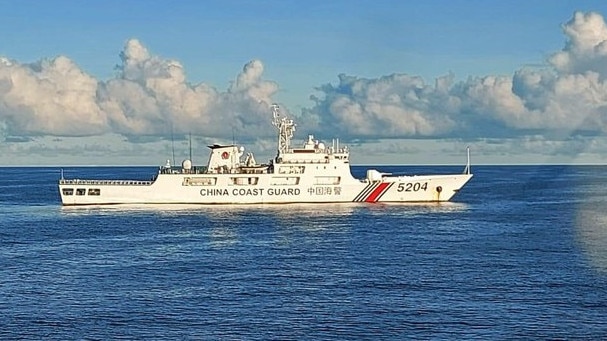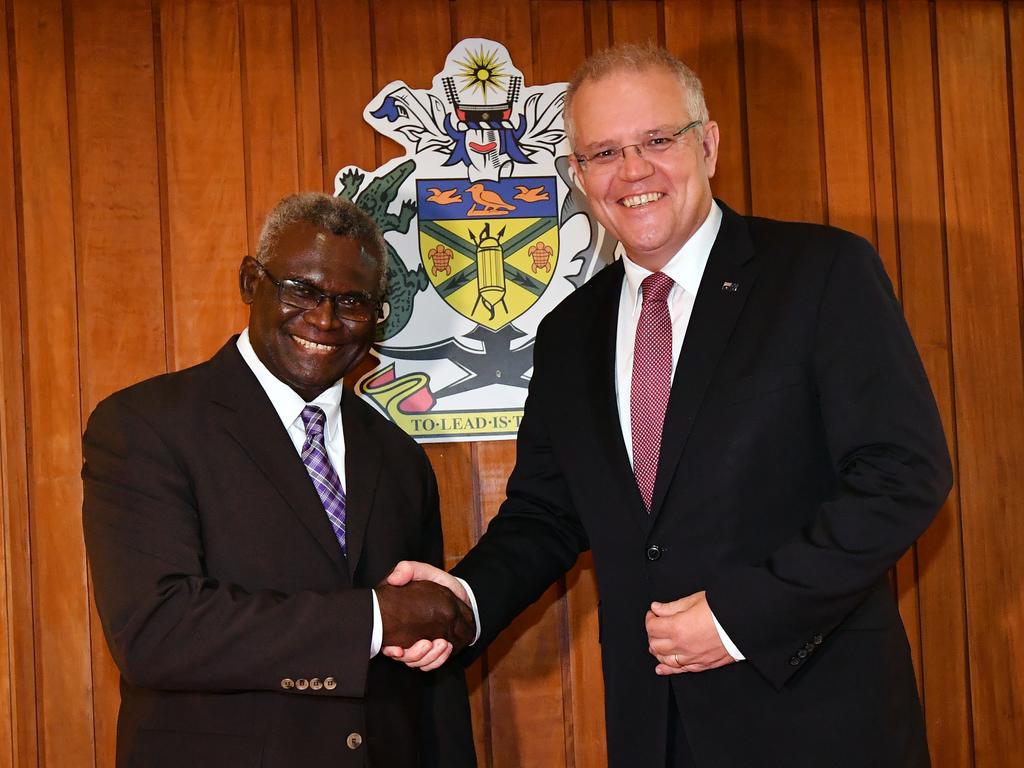We’ll never give up an inch, Jakarta signals China
The unusually strident statement that appeared aimed at ending conjecture at its silence over weeks of illegal Chinese mapping in its resource-rich waters.

Indonesia will “never surrender an inch” of its territory, the government said on Thursday in an unusually strident statement that appeared aimed at ending conjecture at its silence over weeks of illegal Chinese seabed mapping in its resource-rich Natuna waters.
The warning follows a visit to the Natuna Island chain in the southernmost corner of the South China Sea by two of the country’s most senior security ministers and a regional military commander this week.
Co-ordinating Minister for Political, Legal and Security Affairs Mahfud MD said the government had “never let its guard down when it comes to protecting territorial sovereignty against all forms of threats” and would continue to safeguard its outer islands.
“All of our efforts are made to maintain the sovereignty of Indonesia’s territory. We will never give up even an inch of power, sovereignty and rule of law over our land and waters,” Mr Mahfud said at the conclusion of the trip.
Indonesian naval and security agency vessels have watched on for several months as the Chinese surveying ship Haiyang Dizhi, accompanied by multiple coastguard vessels, has conducted extensive seabed mapping inside Indonesia’s economic exclusion zone. The Natunas lie within Indonesia’s EEZ but parts of it also fall inside China’s so-called nine-dash line map that marks its claim to sovereignty over most of the South China Sea – waters estimated to hold $US2.5 trillion in untapped oil and gas reserves.

Jakarta’s prolonged silence over the encroachment has sparked speculation that it was reluctant to jeopardise its access to Chinese investment and vaccines, 21 months into a pandemic that has pummelled its economy.
Teuku Rezasyah, an international relations professor at Indonesia’s Padjajaran University, said China’s recent activity had “forced Indonesia to take a stand after so many months”.
While Mr Mahfud’s unusually strong statement reflected the government’s intention to step up security in the area, Professor Teuku said Indonesia now needed to approach partners such as Australia for better intelligence sharing.
“Australia has Jindalee which is connected to Eyes in the Sky and can quickly identify the movement of a vessel over the past year. This is the kind of sensitive information we need as Indonesia starts to become harder on China,” he said.
The timing of Indonesia’s latest statement has also raised questions, given it follows reassurances from Chinese President Xi Jinping to Southeast Asian leaders at a virtual ASEAN China Summit on Monday that Beijing did not aspire to hegemony and would not bully its smaller neighbours.
Australian Strategic Policy Institute analyst Malcolm Davis said the gulf between Mr Xi’s talking points and Beijing actions in the region meant no one “was buying China’s message”.
“Clearly Indonesia recognises that sitting on the fence isn’t going to wok forever and that they have to draw a line otherwise they will end up with China salami-slicing their way into Indonesian territory,” he said.
“It’s not just the Natuna islands but the resource-rich EEZ that extends out which is the real prize. The fact that the Natuna islands are also close to the Malacca Strait is also important.”
Mr Xi’s reassurances come amid flare-ups between Chinese vessels and those of Southeast Asian nations in the South China Sea, including one last week in which Chinese coastguard boats turned water cannons on Philippines supply vessels trying to reach a naval outpost in the disputed Spratly Island chain.
Philippines President Rodrigo Duterte protested China’s actions on Monday, telling Mr Xi that “we abhor the recent event in the Ayungin Shoal and view with grave concern other similar developments.
Tensions heightened on Thursday, as Manila rejected China’s demand that it remove the grounded ship which lies within the Philippines’ 200 nautical miles EEZ.
Japan and Vietnam also expressed “serious concern” over China’s heightened aggression in the East and South China seas and “any unilateral attempts to change the status quo and increase tensions” during a meeting between the two nation’s prime ministers in Tokyo on Wednesday. A joint statement after the meeting said Japan’s Fumio Kishida and Vietnam’s Pham Minh Chinh agreed on the importance of upholding a rules-based international order and Japan would export more defence equipment, including naval vessels, to Vietnam.
Additional reporting: Chandni Vasandani








To join the conversation, please log in. Don't have an account? Register
Join the conversation, you are commenting as Logout